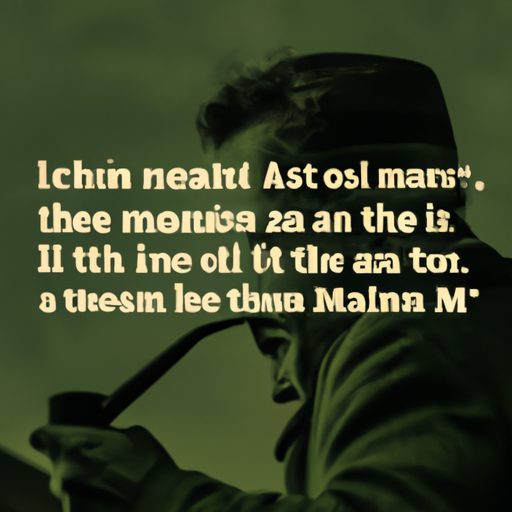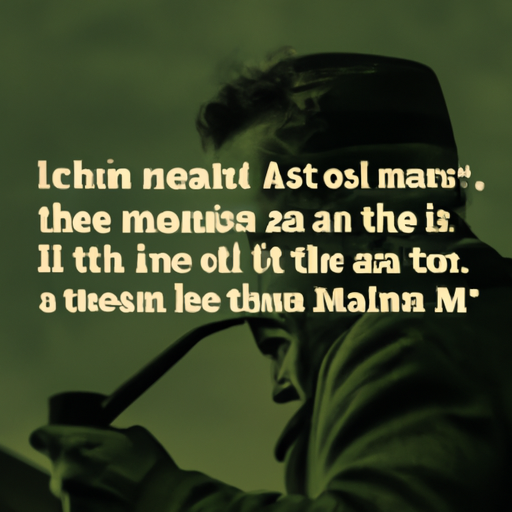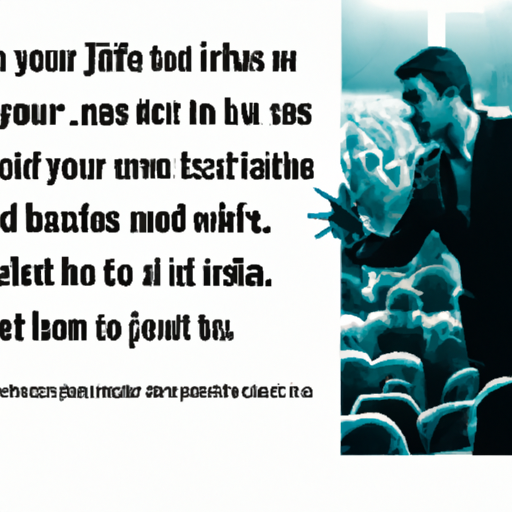Irishman Movie Quotes is a delightful compilation of memorable lines from the iconic Irishman movie. With a collection that spans the movie’s most unforgettable characters and intense moments, this product allows fans to relive their favorite scenes and quotes anytime, anywhere. Whether you’re a die-hard fan or just appreciate the brilliance of Martin Scorsese’s masterpiece, Irishman Movie Quotes is the perfect addition to your movie collection, bringing joy and nostalgia with every turn of the page. Get ready to immerse yourself in the world of the Irishman as you relish in the unforgettable words that have left an indelible mark in cinematic history.
The Irishman Movie Overview
The Irishman is a highly acclaimed crime drama film directed by Martin Scorsese. It was released on November 1, 2019. The film stars Robert De Niro, Al Pacino, and Joe Pesci in the lead roles, with supporting performances from Harvey Keitel, Ray Romano, and Anna Paquin.

Release Date
The Irishman was released on November 1, 2019. It had a limited theatrical release before becoming available for streaming on Netflix starting from November 27, 2019.
Director
The film was directed by the legendary filmmaker Martin Scorsese. Known for his masterful storytelling and unique visual style, Scorsese is regarded as one of the greatest directors of all time. With The Irishman, he showcases his prowess in crafting an engaging narrative that spans several decades.
Main Cast
The Irishman boasts a stellar cast, led by three iconic actors. Robert De Niro delivers a powerhouse performance as Frank Sheeran, a hitman and friend of infamous labor union leader Jimmy Hoffa, played by Al Pacino. Joe Pesci shines in a restrained yet impactful role as Russell Bufalino, a powerful mob boss. Together, these talented actors bring their characters to life, capturing the complexities and nuances of the morally ambiguous world they inhabit.
Key Quotes from The Irishman
Throughout The Irishman, several memorable quotes have left a lasting impact on viewers. These quotes highlight the film’s themes of loyalty, regret, and the consequences of one’s actions.
“It is what it is.”
This recurring phrase emphasizes the characters’ acceptance of the often violent and chaotic world they inhabit. It reflects their resignation to the circumstances they find themselves in and serves as a reminder of the harsh reality they must confront.
“I heard you paint houses.”
This seemingly innocuous quote holds a deeper meaning within the context of the film. It serves as a coded question, referring to the act of committing murder and leaving behind a bloody scene. It showcases the characters’ familiarity with the dark underbelly of their world and hints at the violence that permeates their lives.
“I’m very sorry for keeping you waiting.”
This quote, spoken by Frank Sheeran, carries a sense of remorse and regret. It encapsulates the weight of his actions and the toll they have taken on his relationships. It reveals the humanity beneath the hardened exterior of the characters and highlights the moral complexities they grapple with.
Significance of the Quotes
The quotes in The Irishman hold significant meaning within the narrative and contribute to its overall impact.
Exploring the Meanings
“It is what it is” reflects the characters’ understanding of the brutal nature of their world. It conveys a sense of fatalism and resignation to the violent reality they cannot escape. The quote serves as a reminder that their choices have consequences and that they must accept the consequences regardless of their personal beliefs or desires.
“I heard you paint houses” encapsulates the culture of secrecy and hidden messages that permeates the characters’ interactions. It reveals the double meanings and hidden intentions behind their seemingly innocent conversations. This quote creates an air of tension and uncertainty, reflecting the sinister nature of their activities and the constant threat of violence.
“I’m very sorry for keeping you waiting” exposes the regret and guilt that weigh heavily on Frank Sheeran. It showcases his recognition of the pain he has caused and his desire to make amends, even if it may be too late. This quote adds depth and complexity to his character, humanizing him in the face of his violent past.
Relation to the Characters
The quotes in The Irishman offer valuable insights into the characters’ motivations and moral dilemmas. “It is what it is” reflects their acceptance of the consequences of their actions, showcasing their unwavering loyalty to their respective organizations. “I heard you paint houses” highlights their shared understanding of the hidden language that frames their interactions within the criminal underworld. “I’m very sorry for keeping you waiting” reveals the characters’ capacity for remorse and their struggle to reconcile their violent actions with their deeply buried sense of morality.
Impact on the Storyline
The quotes in The Irishman contribute to the overall impact of the storyline by adding depth and complexity to the characters’ journeys. They heighten the tension and suspense, revealing the moral grey areas that the characters navigate. These quotes serve as powerful reminders of the consequences of one’s choices and the toll that a life steeped in violence can take on an individual.
Context and Background
To truly appreciate The Irishman, it is essential to understand the context and background that informed its creation.
Martin Scorsese’s Vision
As one of the most influential directors in the history of cinema, Martin Scorsese has always been fascinated by the themes of crime and morality. With The Irishman, he delves into these themes once again, weaving a narrative that explores the cost of loyalty and the weight of one’s actions. Scorsese’s unique vision and directorial style elevate the film, creating an immersive experience for audiences.
Adaptation of the Book
The Irishman is based on the book “I Heard You Paint Houses” by Charles Brandt. Scorsese worked closely with screenwriter Steven Zaillian to adapt the novel into a screenplay that captured the essence of the story while bringing it to life on the silver screen. This meticulous adaptation process ensured that the film stayed true to the source material while maintaining Scorsese’s artistic vision.
Historical Context
Set against the backdrop of real-life events, The Irishman explores the intersection of organized crime and American politics during the mid-20th century. The film offers a glimpse into the world of the mafia and its complicated relationships with labor unions and political figures. By grounding the story in historical events, Scorsese provides a compelling narrative that resonates with audiences.
The Art of Storytelling
Martin Scorsese is renowned for his masterful storytelling techniques, and The Irishman is no exception.
Exploring Scorsese’s Narrative Style
Scorsese’s narrative style in The Irishman is characterized by nonlinear storytelling, seamlessly weaving between different time periods. This non-traditional approach allows the audience to witness the characters’ growth and evolution over decades, providing a comprehensive understanding of their motivations and the consequences of their actions.
Character Development
The Irishman excels in its character development, delving deep into the psyche of each protagonist. Through meticulous attention to detail and nuanced performances, Scorsese paints a vivid portrait of individuals grappling with morality, loyalty, and regret. The multi-layered characters drive the narrative forward, captivating audiences with their complexities and flaws.
Plot Structure
The Irishman boasts a sprawling and intricately constructed plot. Scorsese weaves together various storylines, creating a tapestry of intersecting narratives. The film gradually unravels the lives of its characters, building suspense and intrigue with each new revelation. The plot structure keeps viewers engaged, offering both surprises and emotional resonance as the story unfolds.
Powerful Performances
The Irishman features standout performances from its talented cast, each delivering nuanced portrayals of their characters.
Robert De Niro as Frank Sheeran
Robert De Niro delivers a tour de force performance as Frank Sheeran, embodying the character’s journey from a war veteran to a loyal hitman. De Niro captures the internal conflicts, regrets, and emotional complexity that define Sheeran, bringing a captivating depth to the character. His portrayal captivates audiences and serves as the emotional core of the film.

Al Pacino as Jimmy Hoffa
Al Pacino brings his signature intensity and charisma to the role of Jimmy Hoffa, the charismatic labor union leader. Pacino’s performance is electric, capturing Hoffa’s larger-than-life personality and his eventual downfall with heartbreaking authenticity. His scenes with De Niro are particularly compelling, showcasing the power dynamics and complex emotions that define their relationship.
Joe Pesci as Russell Bufalino
Joe Pesci’s return to the big screen in The Irishman is a revelation. After a lengthy hiatus, Pesci delivers a mesmerizing performance as Russell Bufalino, the influential mob boss. Pesci’s understated portrayal exudes a quiet power, showcasing Bufalino’s control and influence in the criminal underworld. His scenes with De Niro and Pacino crackle with tension, highlighting the intricate dynamics between the characters.
Memorable Scenes
The Irishman is filled with memorable scenes that contribute to its rich tapestry of storytelling.
The Sheeran Family Road Trip
One particularly poignant scene in The Irishman occurs during a family road trip. Frank Sheeran takes his daughters on a journey, reminiscing about his involvement in the criminal underworld and the sacrifices he made for his family. This scene serves as a pivotal moment of reflection for Sheeran, revealing his regrets and the toll his actions have taken on his loved ones.
The Conway Trucking Heist
The Conway Trucking Heist is a gripping sequence that showcases the characters’ skills and the danger they face as they execute a high-stakes robbery. It is a meticulously crafted scene that serves as a testament to Martin Scorsese’s prowess as a filmmaker and his ability to create tension and suspense.
The Final Meeting
The final meeting between Frank Sheeran and his daughter Peggy is a powerful and emotional scene. It encapsulates the profound impact Sheeran’s choices have had on his family and serves as a poignant conclusion to the film. Through subtle yet powerful performances from De Niro and Anna Paquin, the scene builds to a climactic moment of heartbreaking realization and regret.
Reception and Impact
Upon its release, The Irishman received widespread critical acclaim and had a considerable impact on the crime genre.
Critical Response
The Irishman was met with overwhelming praise from critics. Martin Scorsese’s direction, the performances of the cast, and the film’s epic scope were lauded as exceptional. Critics applauded the film’s exploration of complex themes and its ability to subvert genre conventions. The Irishman received numerous awards and nominations, cementing its place as one of the most acclaimed films of its year.
Audience Reception
Audiences responded favorably to The Irishman, captivated by its engrossing storyline, powerful performances, and Martin Scorsese’s unique directorial style. The film struck a chord with viewers, provoking intense discussions about morality, loyalty, and the consequences of one’s actions. Its popularity on Netflix allowed it to reach a wider audience and contributed to its lasting impact.
Influence on the Crime Genre
The Irishman has left an indelible mark on the crime genre, redefining the expectations and possibilities of what a crime film can achieve. Its exploration of the human cost of living a life steeped in violence and its examination of the complex relationships between criminal organizations and political figures have influenced subsequent crime films. The Irishman’s impact can be seen in the renewed interest in historical crime dramas and the continued exploration of morally ambiguous characters in the genre.
Cinematic Techniques
Martin Scorsese’s use of cinematic techniques in The Irishman elevates the film to new heights, creating a visually stunning and immersive experience for viewers.
Scorsese’s Use of Tracking Shots
Scorsese is renowned for his masterful use of tracking shots, and The Irishman is no exception. The film features long, uninterrupted tracking shots that glide through the scenes, capturing the characters’ movements and immersing audiences in their world. These tracking shots add to the film’s epic scope, highlighting the passage of time and the characters’ place within a larger narrative.
Visual Symbolism
Scorsese employs visual symbolism throughout The Irishman to enhance the storytelling. The recurring image of doors and gateways symbolizes the characters’ choices and the consequences that lie beyond them. The use of color, such as the vibrant red of blood, serves as a stark reminder of the violence that permeates the characters’ lives. These visual symbols deepen the film’s thematic exploration and provide layers of meaning for audiences to unpack.
Sound Design and Music
The Irishman benefits from superb sound design and a carefully curated soundtrack. The film’s audio elements, from the ambient noises of guns and cars to the carefully punctuated moments of silence, contribute to the overall atmosphere and tension. The music chosen, ranging from period-appropriate songs to haunting orchestral compositions, enhances the emotional impact of each scene. Scorsese’s attention to detail in sound design and music elevates the film’s cinematic experience.
Legacy and Awards
The Irishman’s impact extends beyond its critical acclaim and audience reception. The film has left a lasting legacy in both the world of cinema and Martin Scorsese’s filmography.
Oscars and Nominations
The Irishman received numerous accolades during awards season, including nominations for multiple Academy Awards. While it did not win Best Picture, the film’s nominations in various categories, such as Best Director and Best Supporting Actor, reflect its significant contribution to the world of filmmaking.
Long-lasting Impact
The Irishman has cemented its place as a modern classic, standing alongside the greatest crime films ever made. Its exploration of complex themes, powerful performances, and masterful storytelling techniques ensure that it will continue to be celebrated and studied for years to come.
Legacy in Scorsese’s Filmography
As the work of a legendary director, The Irishman holds a special place in Martin Scorsese’s filmography. It represents a culmination of his exploration of crime and morality, demonstrating his continued ability to push the boundaries of the genre. The film is a testament to Scorsese’s enduring impact on cinema and his unwavering commitment to storytelling.



















+ There are no comments
Add yours